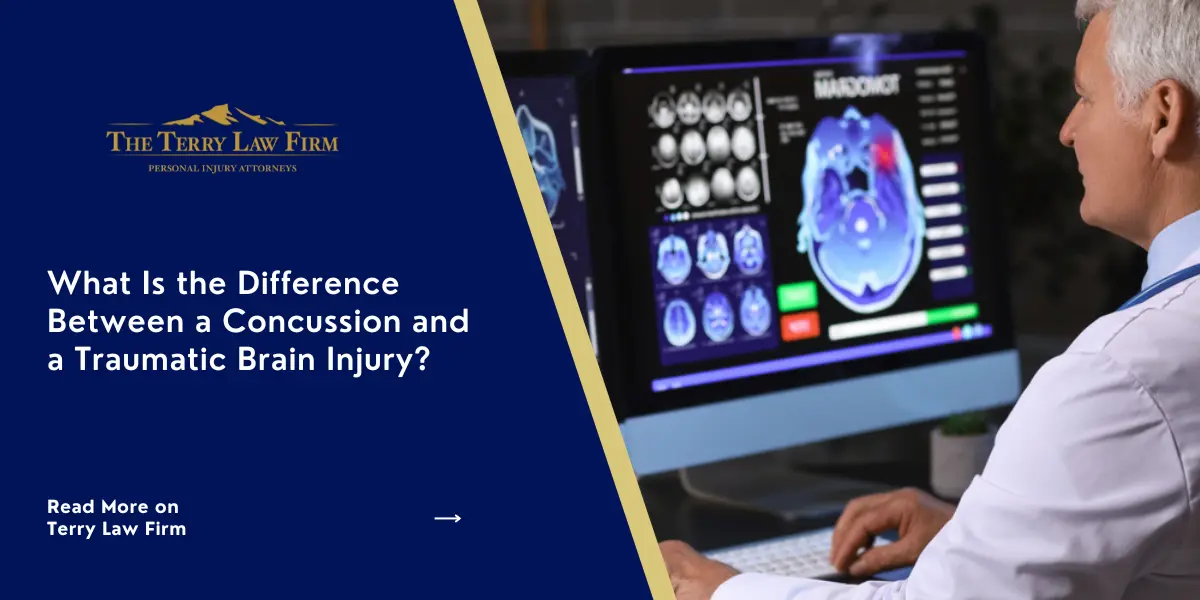
A violent accident can cause significant physical and mental harm to an individual. Two of the most common causes of traumatic brain injuries in the U.S., according to the Centers for Disease Control and Prevention, are falls and motor vehicle accidents, both of which can be caused by other people’s carelessness or negligence.
But what’s the difference between a concussion and a TBI? A TBI is an injury that impairs normal brain function, and a concussion is a relatively milder form of traumatic brain injury. A concussion can still impact or disrupt the normal function of the brain, just not to the same extent as a more severe TBI.
What Is a Concussion and Its Symptoms?
A concussion is a relatively mild traumatic brain injury that often results from a jolt or violent impact to the head. However, the symptoms of a concussion are not always apparent and may take hours or days to manifest. Some of the classic signs of a concussion vs. a TBI include:
- Loss of consciousness
- Headache
- Nausea
- Vomiting
- Fatigue
- Changes in hearing or vision
- Dizziness
- Confusion
Signs of concussion that may appear after the initial incident can also include sensitivity to lights or sounds, irritability, problems concentrating, and forgetfulness. In children, signs of a concussion can also include lethargy, excessive crying, and irritability.
Key Differences Between Concussions and Other TBIs
Medical practitioners often categorize traumatic brain injuries as one of three levels: mild, moderate, or severe. Mild TBIs, such as concussions, are serious but not life-threatening. In many cases, medical observation, rest, and over-the-counter pain medication are all that is needed to manage the symptoms of a concussion. However, having one concussion puts a patient at risk of post-concussion syndrome or a more severe TBI if a second injury occurs.
Moderate and severe traumatic brain injuries tend to cause significant physical and mental impairment, which, in some cases, may be permanent. However, at onset, the difference between a TBI and a concussion may be hard to distinguish.
When to Seek Medical Attention for a Head Injury
Seek medical attention for a suspected head injury immediately. All head injuries must be evaluated by a medical professional who can properly diagnose and treat a TBI.
There is no way to tell just by looking at a person how severe their head injury is. In the aftermath of an accident, the adrenaline in a person’s system can mask some of the most obvious signs of an injury. Swelling and bleeding in the brain are not apparent to the naked eye but can be life-threatening. Even relatively mild TBIs like concussions can turn serious without proper medical treatment and intervention.
Contact The Terry Law Firm for Help with Your Brain Injury Case
If you have been diagnosed with a concussion or other traumatic brain injury following an accident someone else caused, get help with your brain injury case from the legal team at The Terry Law Firm. Our personal injury attorneys stand ready to evaluate your situation and help you seek the maximum compensation you deserve for your medical expenses and other losses.
Contact our office today and request a free initial consultation to learn more.

